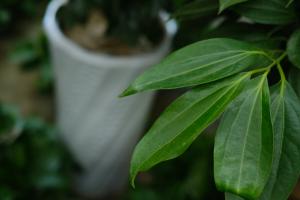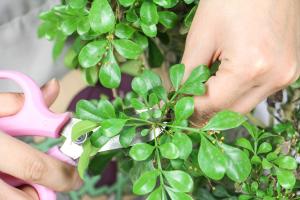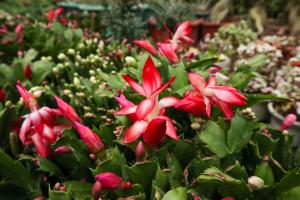Do you leave plants in plastic pots?
Many of us have used plastic pots for our indoor and outdoor plants. They are lightweight, affordable, and come in a variety of sizes and styles. However, is it okay to leave our plants in plastic pots for extended periods of time?
The benefits of plastic pots
Plastic pots offer several benefits for plant care. Firstly, plastic is a non-porous material, meaning that it does not absorb water. This can be beneficial for plants that require consistent watering, as the soil will retain moisture for longer periods. Secondly, plastic pots are durable and long-lasting, making them an economical choice for gardeners. Finally, plastic pots are available in a wide range of colors, shapes, and sizes, making them an attractive option for indoor and outdoor décor.
The drawbacks of plastic pots
Despite their benefits, plastic pots do have some drawbacks that gardeners should be aware of. Firstly, plastic is not a breathable material, which means that air cannot circulate around the roots of the plant. This can lead to the roots becoming waterlogged, which can cause rot and disease. Secondly, plastic pots can become brittle over time, especially if left in direct sunlight. This can cause them to crack or break, potentially harming the plant. Finally, plastic pots are not environmentally friendly, as they are not biodegradable and can take hundreds of years to decompose.
The best way to use plastic pots
If you choose to use plastic pots for your plants, it is important to take proper care of them. Firstly, ensure that the soil is well-draining, and do not overwater your plants. If you notice that water is not draining from the pot, consider repotting the plant in a larger container with more drainage holes. Secondly, protect your plastic pots from direct sunlight, as this can cause them to become brittle and break. Finally, consider recycling your plastic pots or donating them to a garden center or community organization that can reuse them.
Alternatives to plastic pots
If you are looking for a more environmentally friendly option for your plants, consider using pots made from biodegradable materials such as bamboo or paper. These materials will decompose naturally and do not harm the environment. Additionally, using clay or ceramic pots can provide better airflow to the roots of the plant, helping to prevent rot and disease. However, these pots can be heavier and more expensive than plastic pots.
The bottom line
Whether you choose to use plastic pots or an alternative material for your plants, it is crucial to ensure that they receive proper care and attention. By taking steps to prevent waterlogging and protect your pots from sunlight, you can help your plants thrive and grow for years to come. Additionally, by considering the environmental impact of your plant care choices, you can help protect the planet as well.

 how many times do yo...
how many times do yo... how many planted tre...
how many planted tre... how many pine trees ...
how many pine trees ... how many pecan trees...
how many pecan trees... how many plants comp...
how many plants comp... how many plants can ...
how many plants can ... how many plants and ...
how many plants and ... how many pepper plan...
how many pepper plan...






























